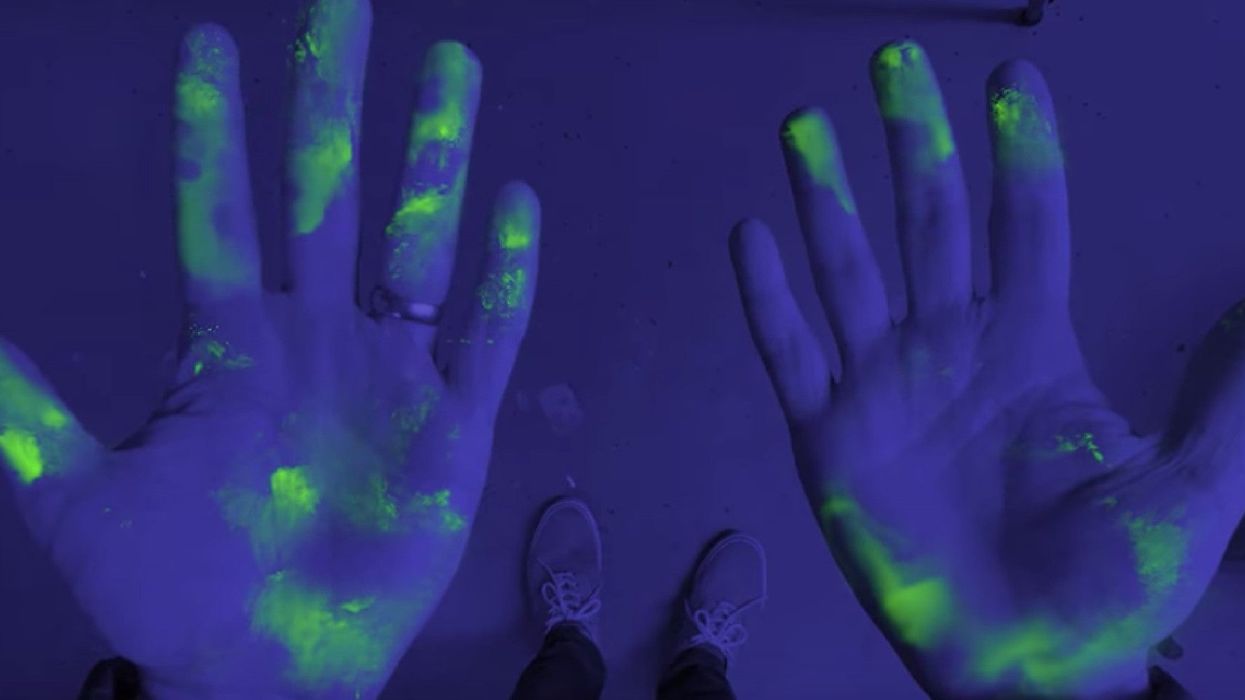Viral
Greg Evans
Mar 25, 2020

Picture:
Mark Rober/YouTube
Since the start of the coronavirus outbreak, it's safe to say that everyone has become fully obsessed with germs and keeping our hands clean at all times.
Until now, we were more than likely fully aware of just how easily germs could spread but probably didn't take much notice as we should of.
Then the coronavirus arrived on our doorstep and people couldn't get enough washing hands in the soapiest water possible and covering ourselves in hand sanitiser.
It's great that we are all taking notice of germs but one can only hope that we maintain this level of hygiene once the pandemic is over... but that could be wishful thinking.
Perhaps this video from former Nasa engineer Mark Rober will change how you view germs and cleanliness forever and how important it is to wash your hands on a regular basis.
In the experiment, which takes place in a third-grade classroom in San Francisco, Rober uses a special type of fluorescent dust, called Glo Germ which shows up underneath a UV light.
To start the experiment, the teacher, who has the dust already on her hands, shakes hands with three different students and leaves it at that.
Then, just a few hours later, he used his special UV flashlight to show just how much the 'germs' had spread and to say they are everywhere would be an understatement.
The powder shows up on the sink, phone, bins, walls, desks, paper towels and even other children and the teacher's face.
The most shocking element of this experiment is that the children in the video were pretty diligent at watching their hands and still managed to spread the germs.
Rober also tests how thoroughly the kids wash their hands over the course of 20 seconds and although they are pretty good, like all of us, they still miss a few key areas.
It's an important reminder to anyone who doubts how valuable and important personal hygiene is and how quickly a virus can spread, and why it is so important to refrain from touching your face.
Top 100
The Conversation (0)













